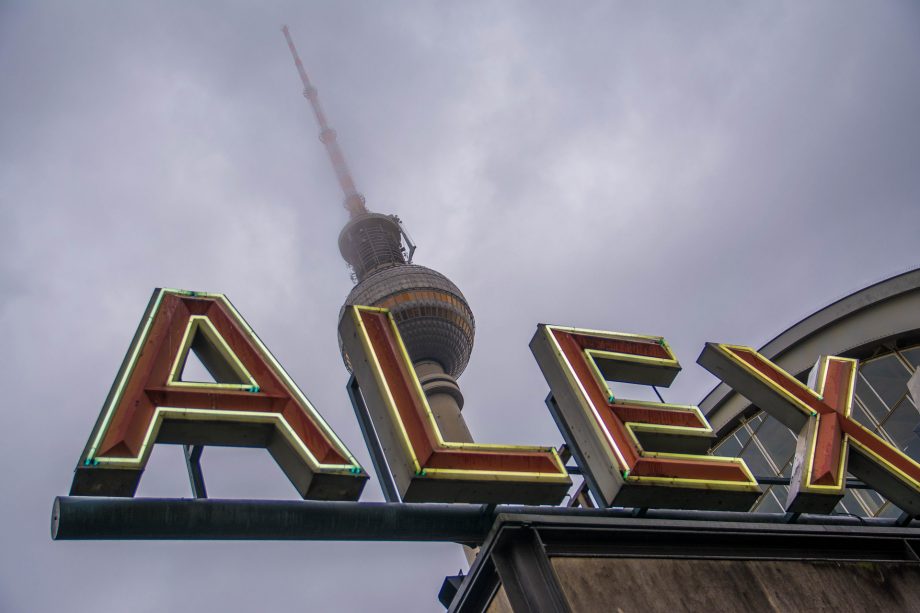The German capital of Berlin has emerged as one of the most fascinating places to visit in all of Western Europe. A cosmopolitan and welcoming city, there will be something for everyone to enjoy in Berlin – whether you’re interesting in partying the night away in one of the many late night clubs and bars, investigating the rich and varied history or simply relaxing in one of the many green spaces. Liberal and action-packed, Berlin is a must-see destination for any digital nomad looking for an unforgettable experience.
The History of Berlin
Berlin was founded in the 13th Century, and its early history is defined by culture as the capital and jewel in the crown of Germany’s Prussian empire. Sadly, the city experienced a great many troubles in the early 20th Century thanks to two world wars. There is no need to go over that here; rest assured, the city itself does not shirk any responsibility to educate gaps in your historical knowledge with a number of museums dedicated to these conflicts.
Ever since the Berlin Wall fell in 1989, marking the end of the Cold War, the city has undergone a renaissance. It was re-assigned the status of Germany’s capital city in 1991, and now stands as the economic, cultural and creative capitals of the continent.
Language and Climate in Berlin
Being such a multi-cultural hub, you will hear a variety of languages on the streets of Berlin besides German – English, Polish, Turkish, Arabic and Russian in particular. It’s still advisable to learn at least some German before travelling if necessary, but with an increasing number of ex-pats moving to the city, you may find that English gets you further than you’d think.
Berlin’s climate is continental, meaning that it’s rarely freezing, but equally doesn’t reach the same scorching temperatures as some other European cities. Rain is a year-round possibility, and it’s always advisable to pack warmer clothing if you’re visiting any point outside the heart of summer, and prepare for snow throughout the winter.
Laptop-friendly cafes to remote work in Berlin
If you’re in Berlin or planning to spend some time in Berlin as a remote worker and looking for some of the best cafes to remote work from you can check out our laptop-friendly cafe in Berlin guide here
Which Areas to Stay in Berlin
Berlin has no single central zone, so where you decide to station yourself depends on what you hope to gain from your visit. Alexanderplatz, in the borough of Mitte, is closest to most conventional attractions, though it has been heavily gentrified so if you are looking for a ‘real’ Berlin experience, you may wish to broaden your search,
Friedrichshain or Savignyplatz on the city’s east side are safest bet for party people. Famed for their nightlife, these districts are where the artists and creative types of Berlin station themselves. Dorotheenstadt and Friedrich-Wilhelm-Stadt are cultural hubs, while Pariser Platz will delight history buffs, housing symbols of the fallen Berlin Wall.
West Berlin is a little wealthier, and thus quieter – if you’re on a sightseeing trip as opposed to a stein-sipping one, you should probably look to this side of the city. Charlottenburg is stuffed to the rafters with recognisable brand name hotels and easy transport links, or the Turkish district of Kreuzberg is a little edgier, but still packed with eateries and bars.
How to Get Around Berlin
German efficiency is rarely more impressive than with Berlin’s public transportation systems. Public company BVG, the Berlin Transport Authority, lay on underground trains, trams, ferries and buses, all of which are fairly priced, timely and clean. A private company named S-Bahn operates an overground rail system, with similar finesse. With no central downtown area, you may need to familiarise yourself with how to get around Berlin using these means.
Public transport in Berlin is divided into three zones, labeled A, B and C, though most visitors will not need to venture past the first two; with a single trip priced at just €2.70 or a day pass available for €6.90, this is a cost-effective way of seeing the city. Alternatively, visitors can purchase a CityTourCard for €17.40, which offers unlimited travel and discounted entry and purchases at a number of attractions and venues for 48 hours.
If you prefer to drive, learn about the policy of Environmental Zones within Berlin. To combat air pollution, only cars below a particular emission threshold can travel in these areas, and a sticker will need to be applied for. Happily, however, Berlin’s roads are not treacherous and any experienced driver should be comfortable negotiating them.
Berlin Culture and Attractions
Berlin hosts over 500 art galleries and museums covering just about every imaginable area of interest, so nothing is achieved by listing them here. Museumsinsel, or Museum Island, is located in Mitte and hosts five of the most prominent constructs.
As we have suggested already, Berlin is now fabled for its nightlife, particularly in the east of the city. With no fixed closing hours you will find no shortage of bars and clubs to pop into whenever the mood takes, and Berlin is a paradise for gay clubbers – the origin of the LGBTQ rights movement, the locals have a famously liberal outlook and host a number of celebratory festivals.
The performing arts are also hugely popular in Berlin; you will find with over 40 venues celebrating high culture, including three major opera houses and seven symphony orchestras. Major rock and pop acts will play at venues such as the Mercedes Benz Arena, Olympiastadion or Tempodrom, while if you visit in February you’ll also be able to catch the Berlin Film Festival across 22 different cinemas. Major rock and pop
Berlin enjoys also a major sporting culture; fitting, for one of the greenest spaces in all of Europe. Hertha Berlin are the major football club plying their trade in the Bundesliga, while Alba Berlin is a hugely successful basketball team. Eisbaren Berlin are a dominant force in German Ice Hockey, and handball and volleyball are equally popular within the city.
Eating out in Berlin
Germany is famous for its food exports, and Berlin represents the country with pride. The city is packed with restaurants and street food that should cater to every taste.
Currywurst is the capital’s national dish (so much so that you’ll find a museum dedicated to the dish on Schützenstraße), and you’ll find these spicy hot dogs all over. With such a sizable Turkish contingent, Berlin also offers astonishing donor kebabs – perfect for soaking up a late night beerfest at one of the many taverns.
Other traditional meals enjoyed in Berin include Senfeier, which consists of hard-boiled eggs served with mash and coated in mustard sauce, and Königsberger Klopse; meatballs with a side of potato, served with a lemon and caper sauce.
Those with a sweet tooth will also be served – Berliner means donut, after all. However, in Berlin, you’ll need to ask for a pfannkuchen (the German word for pancake in other Teutonic cities) for such a treat.
Conclusion
Berlin should be on every curious digital nomads list of go-to destinations. The strange twists and turns of history have made Berlin a one-of-a-kind city that simply could not be recreated even if we tried.


